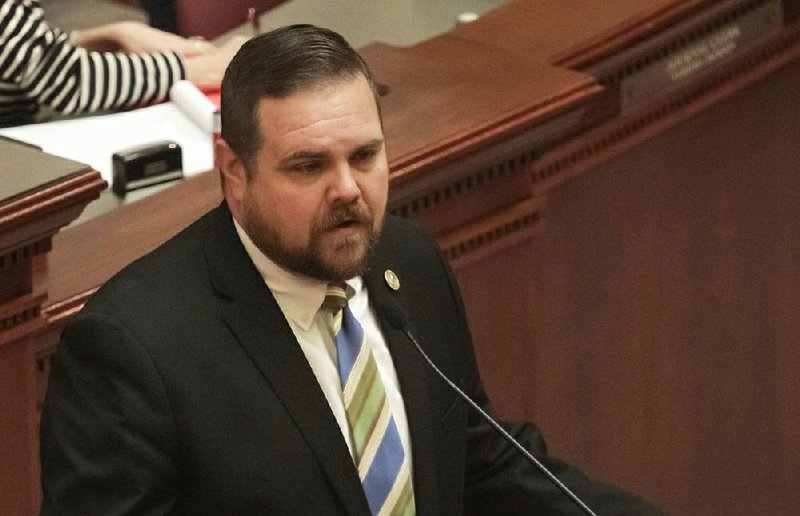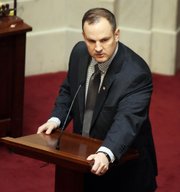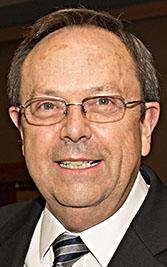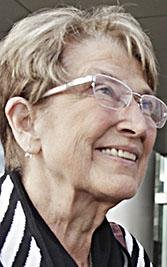State Capitol Republicans said last week that they're ready to propose a near-total ban on abortions, as many social conservatives muse that an upcoming vacancy on the U.S. Supreme Court presents an opportunity they have sought for nearly a half century.
Justice Anthony Kennedy, who announced Wednesday that he will retire July 31, had joined the high court's more liberal justices in a series of narrow opinions over the years to uphold abortion rights, legalize gay marriage and end mandatory life sentences for juvenile offenders. His announcement immediately prompted speculation that those opinions could be reversed should a fifth solidly-conservative justice be confirmed to the court.
In Arkansas, the most immediate reaction to Kennedy's announcement came from anti-abortion lawmakers and advocates for legal access to abortion, which is more limited in the state than almost anywhere else in the nation.
Within 24 hours of the news, several lawmakers said they were preparing to take the next steps toward ending almost all abortions in the state.
"I have a bill for that," tweeted state Rep. Bob Ballinger, R-Hindsville, on Thursday morning.
"I'm in," responded state Sen. Trent Garner, R-El Dorado.
Arkansas law already restricts abortion past the 20th week of pregnancy. The last time the Legislature met in regular session, in 2017, a series of bills passed with the support of the conservative Family Council with the intent to make Arkansas the "No. 1 pro-life" state.
Court challenges have blocked the implementation of several of Arkansas' laws. One -- a 2015 law requiring doctors who perform pill-induced abortions to have a contract with a second doctor who has hospital admitting privileges -- is under a temporary stay by a federal judge. The law is being challenged by Planned Parenthood, which says it will have to stop performing abortions at its clinics in Little Rock and Fayetteville if the law is allowed to take effect.
That would leave one clinic in the state, Little Rock Family Planning Services, to perform abortions.
In a phone call Thursday, Ballinger said a draft version of his bill would allow abortions only when the life of the mother is at risk, but would not include exceptions in cases of rape or incest.
Groups defending abortion rights, including Planned Parenthood Great Plains and the American Civil Liberties Union, issued remarks reminding their supporters what is at stake with a shake-up on the court.
"With Justice Kennedy's retirement, the future of Roe v. Wade is definitely at risk," wrote ACLU Arkansas President Rita Sklar in an email, referring to the 1973 U.S. Supreme Court decision guaranteeing women the right to an abortion. "But Rep. Ballinger will have a hard time in Arkansas because most Arkansans oppose overturning Roe v. Wade, and none of us want to go back to the days when women were forced into childbirth, or died in back alley abortions."
According to the Department of Health, there were 3,249 abortions performed in Arkansas last year, up slightly from 2016.
The Arkansas Legislature is not currently in session and is not scheduled to meet until the 2019 regular session, when Ballinger said he hoped to run his bill.
While Democrats have called upon the U.S. Senate to stall the confirmation process until after the November elections, Republicans have control of the chamber, and Senate Majority Leader Mitch McConnell of Kentucky has said he wants a nominee confirmed by the fall.
President Donald Trump has not named his pick to succeed Kennedy, a decision that could affect how leaders in Arkansas proceed.
Trump told reporters Friday that he would announce his selection on July 9 and that he was considering about five candidates, including two women. The president also said he wasn't going to ask candidates if they would vote to overturn Roe v. Wade.
"I'm not interested in passing a law that will be declared unconstitutional," said Ballinger, who is an attorney. However, he explained that he might alter his legislation -- a draft of which he declined to share -- or not run it at all if a more centrist judge is chosen.
If Trump's choice of a judge opposes abortion, as he promised during his presidential campaign, an Arkansas law banning abortion would likely prompt an immediate challenge that could become a conduit for the U.S. Supreme Court to reconsider its decision in Roe v. Wade, Ballinger said.
Despite the excitement among social conservatives, some stalwarts of anti-abortion policies said they'd wait until a new justice is seated before developing their next legislative action.
"Many of us who have been around this a while know it's no sure thing," said Jerry Cox, the president of the Family Council. "I do expect a very heated battle over this nominee because those on the left know how much this means."
In addition to upholding abortion access, Kennedy and the court's liberal justices joined together several times to expand gay rights, including the right to marry.
"I am terrified, absolutely terrified," said Cheryl K. Maples, an attorney in Heber Springs who has represented numerous gay Arkansans in civil-rights cases, including a 2014 challenge to the state's ban on same-sex marriage that was briefly struck down by a Little Rock circuit judge.
Same-sex marriage was legalized in every state in the country the next year by Kennedy's opinion in the Supreme Court case Obergefell v. Hodges. In that decision, Kennedy joined Justices Ruth Bader Ginsburg, Elena Kagan, Stephen Breyer and Sonia Sotomayor, who are often considered the four liberal justices on the court.
More recently, in 2017, the U.S. Supreme Court said in a 6-3 decision that Arkansas must automatically print the names of both parents in a same-sex couple on their child's birth certificate. Chief Justice John Roberts, who remains on the court, joined Kennedy and the liberal justices in that decision.
Maples said she was not concerned about a potential reversal of the court's landmark gay marriage decision, saying, "The cat's out of the bag," but she said a more conservative court could erode protections in other areas, such as employment or housing discrimination.
But the Arkansas Constitution is written to ban gay marriage, leaving open the possibility that a reversal by the U.S. Supreme Court could end further gay marriage in Arkansas without any action by the Legislature.
"It's only because of Obergefell that our state law and constitutional amendment are not enforceable," Ballinger said.
Kennedy joined the court's four more liberal judges in the 2012 decision Miller v. Alabama, that declared that mandatory life sentences for juveniles violated the U.S. Constitution. That decision helped get a new sentence for an Arkansas co-defendant in the case, Kuntrell Jackson, and prompted the Legislature to overwhelmingly pass the Fair Sentencing of Minors Act in 2017, after failing to do so just two years previously.
"I would not want to change everything that we fought for to get that enacted," said state Rep. Rebecca Petty, R-Rogers, an advocate for victims' rights who dropped her opposition in order to sponsor the 2017 law. "There are so many people that [the law] touched on the positive and the negative."
Asked about the possibility of mounting a challenge to Roe v. Wade, legislative leaders and Gov. Asa Hutchinson were quick last week to point out their opposition to abortion, but none offered comment on legislation they said they had not seen.
In a statement, Hutchinson said he supported a reversal to Roe v. Wade that would leave it up to the states to decide on their own abortion rules.
What remains unclear is how Democrats, looking to reverse their own depleted ranks in the state Capitol, will address Kennedy's departure in their campaigns to defeat Republicans such as Hutchinson and Ballinger.
The newly appointed House minority leader, state Rep. Charles Blake, D-Little Rock, said the party would not prioritize issues already decided by the U.S. Supreme Court. That opinion contrasted with other outspoken Democrats, such as a former minority leader, state Rep. Greg Leding, D-Fayetteville.
"The Supreme Court movement has been a wake-up call," Leding said.
SundayMonday on 07/01/2018




